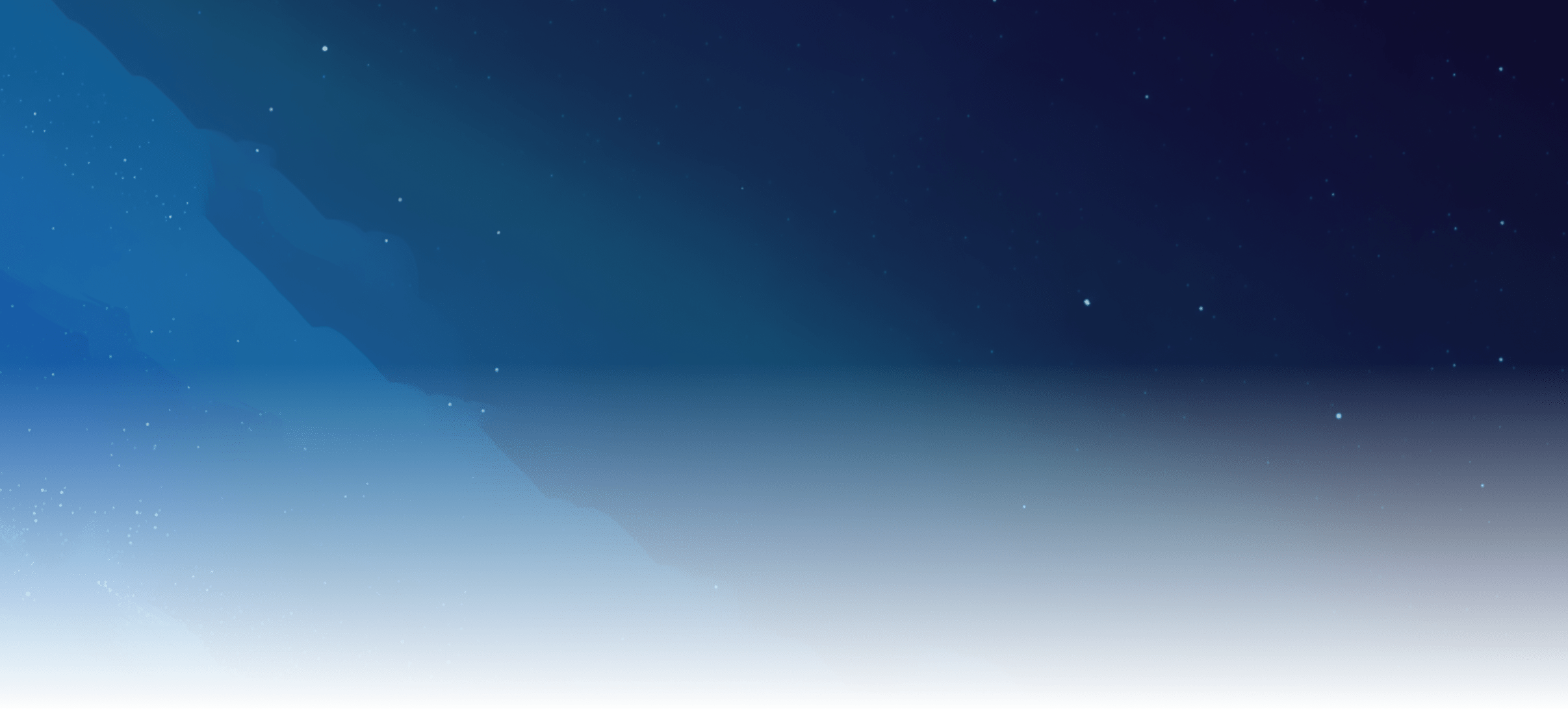
Fishing for the Commons
2024-cohort-4
europe
climate
circular-economy
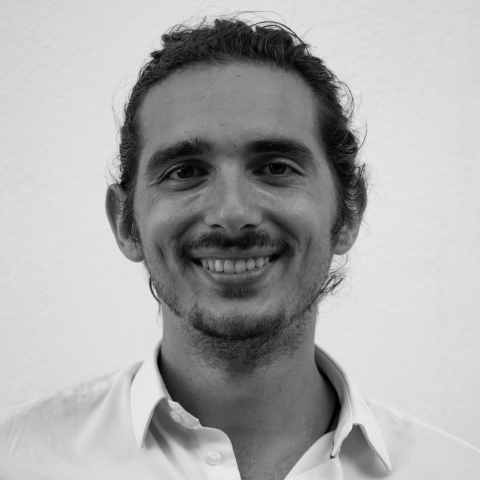
Lefteris
Greece
Lefteris Arapakis
Lefteris was born into a family with a deep-rooted tradition in the fishing industry. In 2016, he founded Enaleia(opens in a new tab) to engage fishers in addressing the social and environmental challenges of ocean degradation. Lefteris began by educating fishers on sustainable practices and integrating collected waste into a circular economy, focusing on the plastics value chain in Greece. His initiative quickly expanded to encompass the entire Mediterranean Sea. A key aspect of Enaleia's work is tracking the lifecycle of ocean-collected plastic, and as part of his Fellowship, Lefteris will transition the platform into a public chain and explore other blockchain-related verticals into Eneleia.
Enaleia started as a training school for fishers; meant to help new people find and learn the timeless trade and tradition that my family has carried on for 5 generations. On one of the first trips out on the boat, and as the men hauled up a net filled with fish , I noticed a can of coke, recognizable if a little bit worn out. I picked it up to examine it, and was startled to see the date 1987 written in faded lettering on the side. As I stood there contemplating that this piece of trash had been floating in the sea for almost 30 years, one of the fishermen came beside me, plucked the can from my hand, and casually tossed it back into the sea. "Trash isn't our problem," he said.
Main Character Energy
The Mediterranean sea is a perfect example of a commons in the modern world. This vast body of water supports almost 500 million people across 22 different coastal countries and territories. Being an international sea commons, its ecosystem is not fully anyone's responsibility or jurisdiction, and therein lies the possible tragedy: The Mediterranean is today one of the seas with the highest levels of plastic pollution in the world — up to four times as many microplastic fragments (1.25 million per km^2) as the 'plastic island' in the Pacific. At current rates by 2050, kilogram for kilogram, there may be more plastic than fish in its waters. And there is the truth that bothered me on the boat; trash—plastic trash in particular—is everyone's problem, including and especially fishers, who depend on a healthy ocean ecosystem to live!
Enaleia is on a mission to write a new chapter in the story of sea fishing, to restore sustainable practices, and to empower those who live closest to the ocean, the Fishers, to be heroes in the story. Through education, prevention, and mitigation, we can set ourselves on a path toward ocean ecosystem flourishing.
This problem of plastic is not a national problem, or even an EU problem; it's a Mediterranean problem. And so it requires Mediterranean collaboration. More importantly, the change can't come from the top-down — just like the plastic itself, real change needs to come from the bottom-up! We must find a way for many different people, from very different backgrounds, contexts, and cultures to work together to solve a complex coordination challenge.
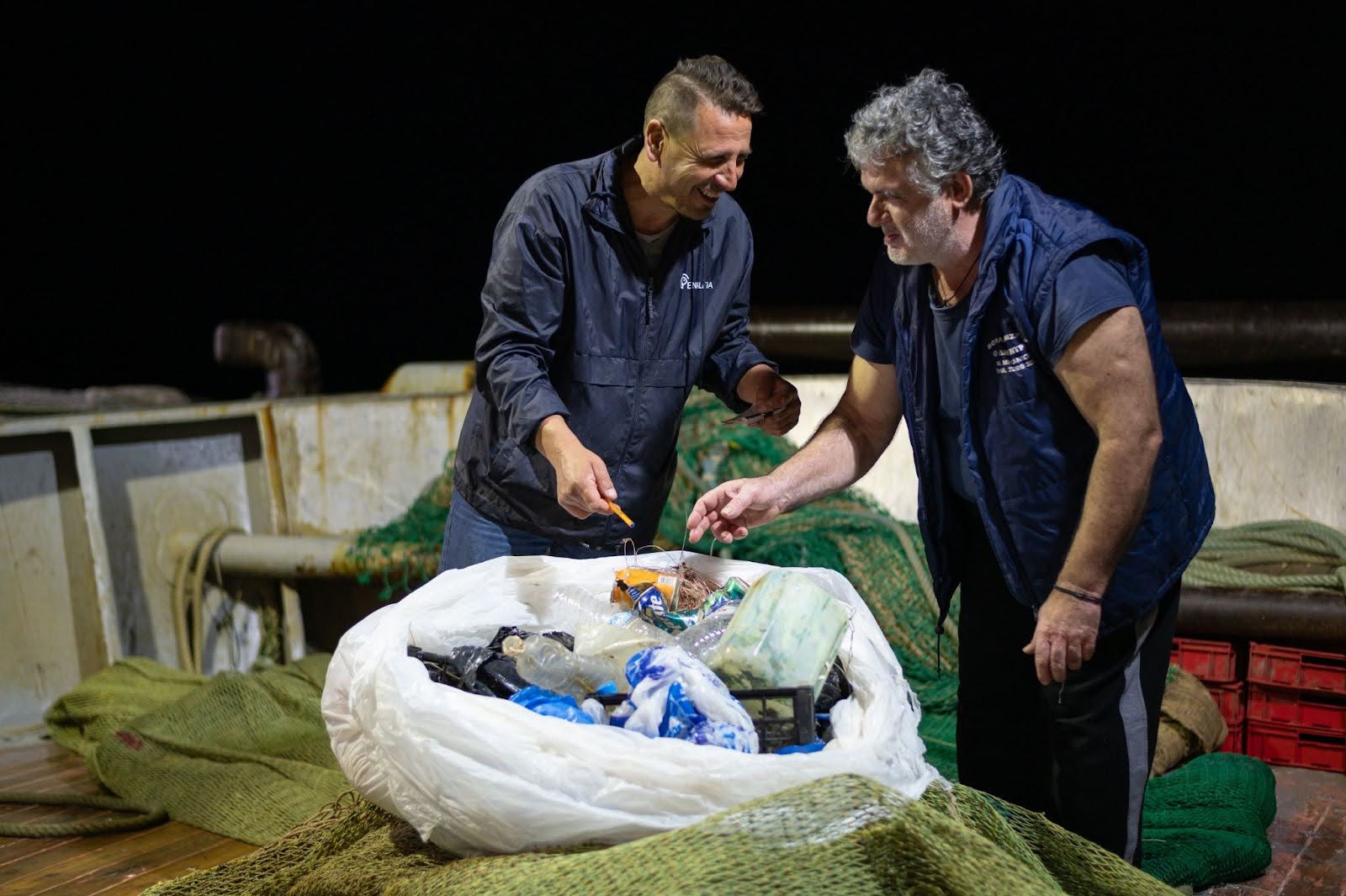
Writing the Ocean Cleanup Playbook
The first part of the solution is straightforward: we want to get the Fishers to fish for plastic. When you think about it, it makes quite a lot of sense: The fishers were already catching lots of plastic out on their hauls, but because it has no value to them, they would always throw it back. All we needed was a small nudge to keep the plastic on the boat and bring it back to port, instead of tossing it back into the sea.

So when we set up at a port, we provide real payments for items like bottles, plastic pipes, nets from the sea (“ghost nets” are a significant part of ocean plastic waste), and we set up a weigh station to pay Fishers for any caught plastics that they haul back. In all of the ports that we operate in combined, participating Fishers bring in about 20,000 kilos weekly (about 2 trucks filled with plastic daily). The way we have things set up so far, we've removed more than a million and a half tonnes of plastic from the oceans since 2018. The process works because the Fishers know deep down that hauling the plastic to port is better for everyone, and the payment at our port station gives them some validation and incentive to do the right thing.
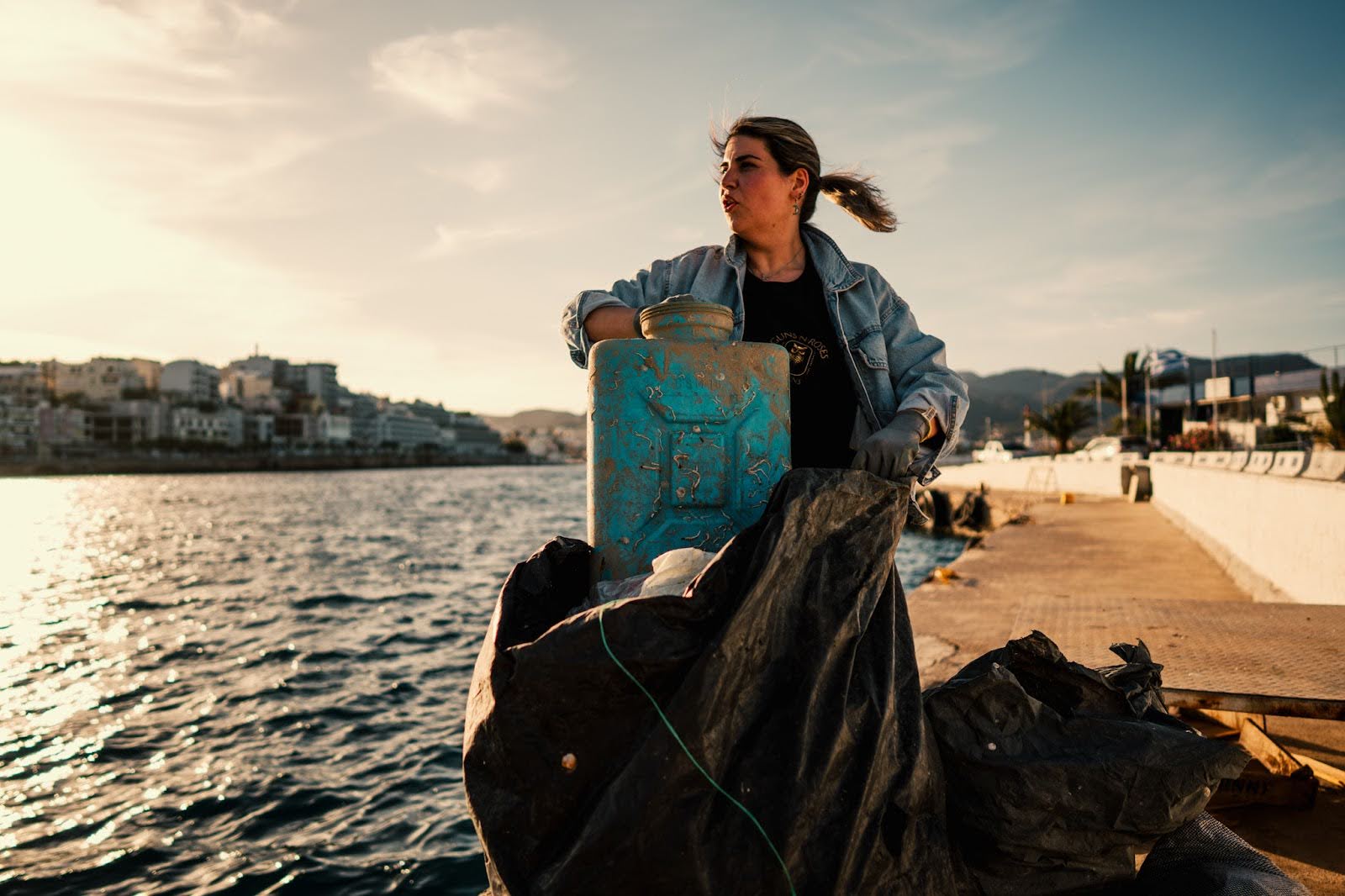
The next step in the pipeline is what to do with all those plastics. In participating ports, with plastics weighed and Fishers paid, the "waste" materials are brought to a container or warehouse where they can be sorted into recycling categories, crushed for transport, or sent to a proper landfill. The goal with this sorting is maximum efficiency for circular economy re-integration.
The used fishing nets that I mentioned earlier are sent, depending on the type, to various companies, such as Gravity Wave, that turn them into furniture. Compatible PET plastics are sent to pelletization factories offsite, that grind up the plastic into a form that can be mixed with other materials to create sustainable products, such as jackets and shoes. Other mixed plastic is sent to specialist companies that can use it as inputs for many types of products from building materials to car parts. My favorite recent example of a circular economy product is a Kayak model(opens in a new tab) made up of about 60% reclaimed Mediterranean plastic!
While this playbook functions well in the ports of Greece that Enaleia is most active in, there’s still a lot of room to explore and grow. Ports of every country are unique, and what works at one port might need to be adapted to fit other contexts. For example in Egypt, where a large amount of plastic waste that aggregates in the Nile river, and where the industrial landscape is much different than in Europe, most of Enaleia’s collected plastics are compressed into building materials like paving tiles for more immediate local use, rather than upcycled consumer products.
From Playbook to Open Platform
We started our journey humbly, of course: beginning with paper records, then weight slips from the waste management companies, then a simple spreadsheet system to accompany a weigh station at every port we operated on. Every record was manually inputted and tracked by Enaleia HQ. When the word “blockchain” started to buzz around, we didn’t immediately see the benefit. But the more I looked into the kinds of guarantees blockchain systems offer, the more convinced I became that Enaleia’s core mission could flourish as a public platform.
We had set up new incentives and mechanisms to improve coordination around cleanup. The recycled plastic supply chain needs tamper-resistant records that move between multiple stakeholders from sea to sorting to factory to recycled product. After the point of sale, consumers also want proof and validation that their products are contributing to regenerative activities. Researchers and governments need open-access public data about cleanup activities. All of these features and properties seemed within reach, but it wasn’t until I discovered Ethereum and the Next Billion Fellowship that it all came into focus.
Over the course of my Fellowship, I and the Enaleia team worked with Pollen Labs(opens in a new tab) to map out our activities from end-to-end, identifying all stakeholders, partners, and processes. We thought through the journey from ocean to product, from multiple perspectives.
We built out a powerful new back-end system for our reclaimed plastic supply chain. At the port of collection, fishers get issued ID cards with their vessel name and other unique identifiers, and port coordinators can use a new mobile app to quickly tag plastic hauls with a unique code that will stay with the materials all the way to the point of sale of a recycled product. Using that same tracking code, consumers can use the public dashboard(opens in a new tab) to trace all the way back to the port and waters their bit of recycled ocean plastic came from.
From Platform to Protocol
While our current model has proven effective in the ports where we operate, the scale of the Mediterranean's plastic pollution demands a solution that can spread faster than any single organization can grow. Enaleia alone cannot be present in every fishing community across 46,000 kilometers of Mediterranean coastline.
By leveraging the Ethereum Attestation Service, Enaleia's system is designed to allow it to evolve beyond a platform controlled by us into a protocol enacted by everyone—a set of open standards and tools that can be implemented at any port, anywhere, by independent actors, and still benefit from the same traceability guarantees.
This transition represents a fundamental shift in how environmental initiatives can scale: rather than growing through traditional organizational expansion, we're creating the conditions for permissionless innovation where others can adopt, adapt, and improve upon our model of ocean cleanup to fit their context. The most powerful solution to the tragedy of the commons isn't a single hero, but rather a distributed network of local heroes all working in concert, their efforts verified and valued through a common way of doing things.
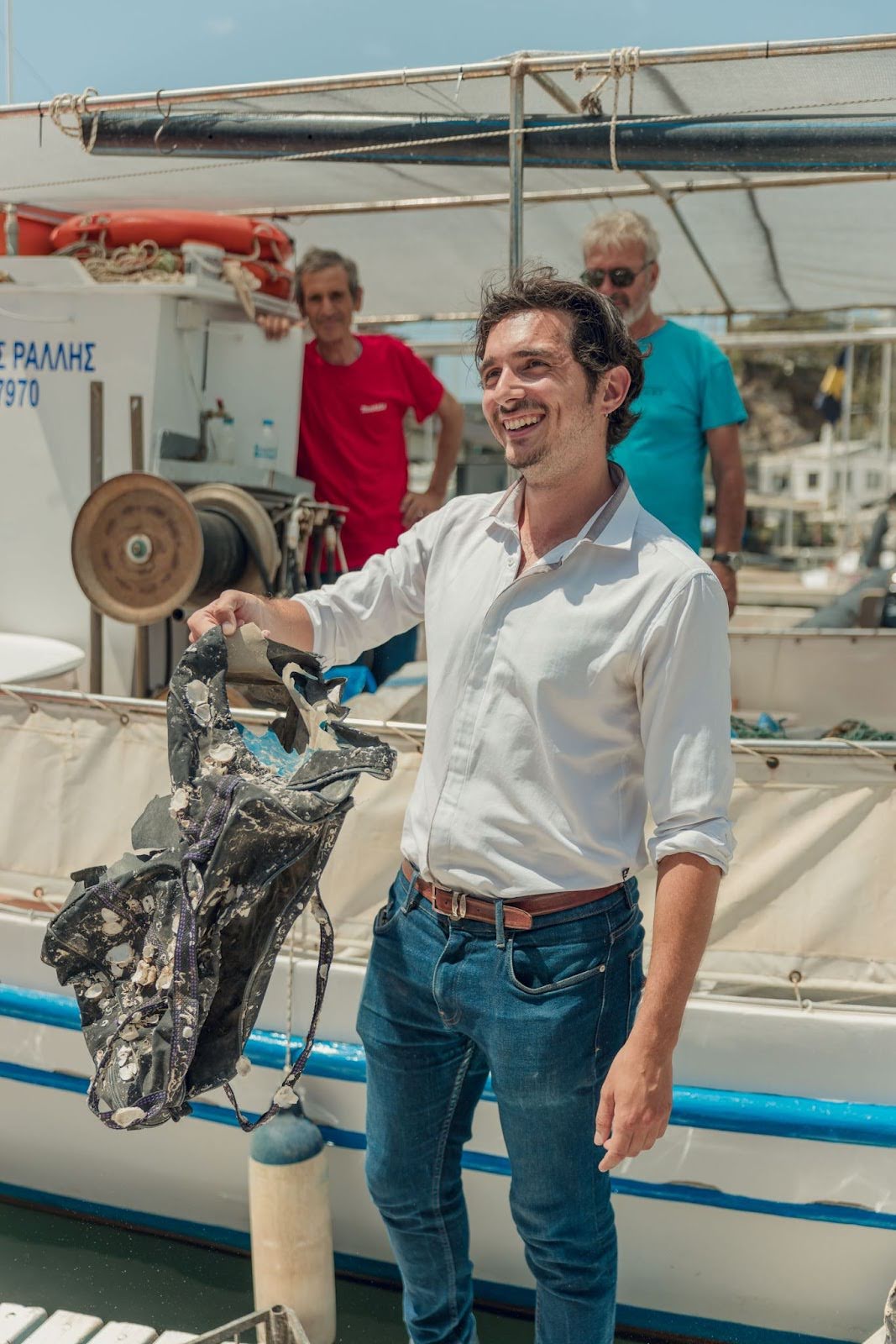
Meet more fellows
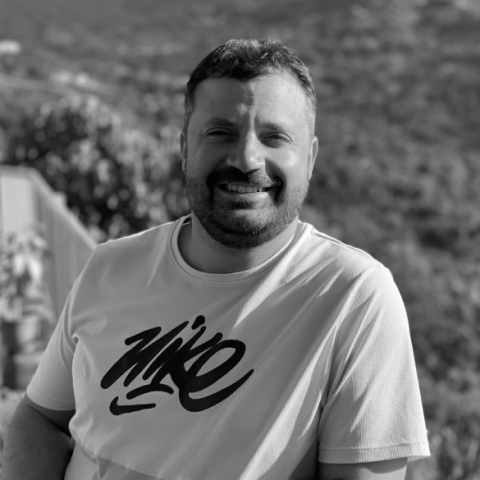
Mihajlo
Serbia
Scouting for the Future
identity
europe-east
DID-VC
2022-cohort-2
global
The scouting movement is decentralised by nature and community-driven by essence. They are working on a Scout's passport on chain, onboarding youth all over the world.
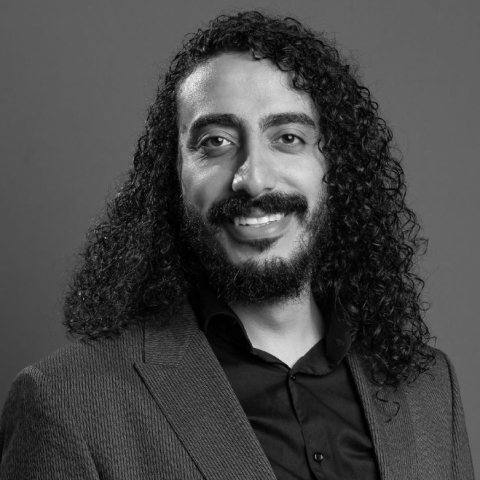
Karam
Syria
Peer to peer aid in Humanitarian Crises
middle-east
p2p
research
NGO
CSO
aid
2022-cohort-2
human-rights
Beyond Borders - Unveiling Potential of Blockchain in a Crisis - the case of Syria